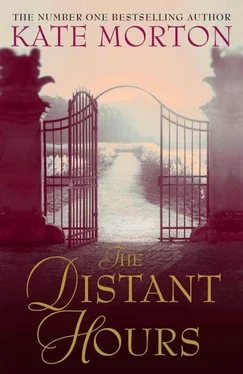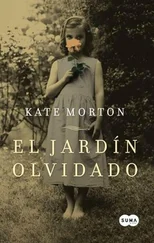I know this because I spent the better part of a sunny weekend in August trawling through the local library’s micro- film records of the Milderhurst Mercury . In retrospect, telling my dad that the origin of The True History of the Mud Man was a great literary mystery was a little like putting a box of chocolates on the floor beside a toddler and expecting him not to touch it. He’s rather results-based, my dad, and he liked the idea that he might be able to solve a mystery that had plagued academics for decades. He had his theory: the real-life kidnapping of a long-ago child lay at the novel’s gothic heart; all he needed to do was prove it and the fame, the glory, the personal satisfaction, would be his. Confinement to bed, however, is no friend to the sleuth, so an agent was necessarily enlisted and dispatched in his place. Which was where I figured. I humoured him for three reasons: partly because he was recuperating from a heart attack, partly because his theory wasn’t completely ridiculous, but most of all because reading my mother’s letters had stretched my fascination with Milderhurst to pathological proportions.
I started my enquiries, as I usually do, by asking Herbert whether he knew anything about unsolved kidnapping cases from the early part of the century. One of my hands-down favourite things about Herbert – and the list is long – is his ability to find precisely the information he’s after in the face of apparent chaos. His house is tall and skinny to start with, four one-time flats patched back together: our office and printing press takes up the first two levels, the attic’s been sacrificed to storage, and the basement flat is where he lives with Jess. Every wall of every room is lined with books: old books, new books, first editions, signed editions, twenty-third editions, stacked together on mismatched, improvised sets of shelves, in a glorious, healthy disregard for display. And yet the entire collection is catalogued in his brain, his very own reference library, so that he has every reading experience of his life at his fingertips. To see him home in on a target is a thing of beauty: first, his impressive brow furrows as he takes in the query, then a single finger, delicate and smooth as a candlestick, raises and he hobbles, wordlessly, to a distant wall of books where the finger is given free reign to hover, as if magnetized, above the spines, leading him, finally, to slide the perfect book from its place.
Asking Herbert about the kidnapping was a lazy long shot, so I wasn’t really surprised when it yielded little of use. I told him not to feel bad and headed to the library, where I befriended a delightful old lady in the basement who’d apparently been waiting there all her life on the off-chance I’d show up. ‘Just sign in over here, my dear,’ she said eagerly, pointing to a clipboard and biro, and shadowing me closely as I filled in the requisite columns. ‘Oh, Billing & Brown, how lovely. My dear old friend, may he rest in peace, published his memoirs with B &B some thirty years ago.’
There weren’t many other folk spending that gorgeous summer’s day in the bowels of the library, so I was easily able to co-opt Miss Yeats to my purpose. We passed a lovely time together, trawling through the archives, turning up three unsolved kidnapping cases in and around Kent during the Victorian and Edwardian periods, then plenty of newspaper reports concerning the Blythe family of Milderhurst Castle. There was a charming, semi-regular column of housekeeping advice written by Saffy Blythe throughout the fifties and sixties; numerous articles about Raymond Blythe’s literary success; and some headlining reports of the family’s near loss of Milderhurst in 1952. At the time Percy Blythe had given an interview in which she made an emphatic case: ‘A place is more than the sum of its physical parts; it’s a repository for memories, a record and retainer of all that has happened within its boundaries. This castle belongs to my family. It belonged to my ancestors for centuries before I was born, and I won’t see it passed into the hands of people who wish to plant conifers in its ancient woods.’
A rather pernickety representative of the National Trust had also been interviewed for the article, lamenting the lost opportunity for their new Garden Scheme to restore the property to its former glory: ‘It’s a tragedy,’ he began, ‘to think that the great properties of our nation will be lost to us over the coming decades, through the sheer bloody-mindedness of those who cannot see that in these lean and austere times, individual residence in such national treasures is tantamount to sacrilege.’ When asked about the Trust’s plans for Milderhurst Castle, he outlined a programme of works including, ‘the structural repair of the castle itself, and a complete garden restoration’. An aim, I’d have thought, that was very much in line with Percy Blythe’s wishes for her family estate.
‘There was a lot of ambivalence about the Trust at the time,’ said Miss Yeats, when I ventured as much. ‘The fifties were a difficult period: the cherry trees were taken out at Hidcote, the avenue at Wimpole was cut down, all in the service of a sort of all-purpose historical prettiness.’
The two examples meant little to me, but all-purpose historical prettiness certainly didn’t sound like much of a match for the Percy Blythe I’d met. As I read further, matters became clearer still. ‘It says here that the Trust planned to restore the moat.’ I looked up at Miss Yeats, who inclined her head, awaiting explanation. ‘Raymond Blythe had the moat filled in after the twins’ mother’s death: a sort of symbolic memorial. They wouldn’t have been happy with the Trust’s plans to dig it out again.’ I leaned back in my chair, stretching my lower back. ‘What I don’t understand is how they could’ve hit such hard times in the first place. The Mud Man is a classic, a bestseller, even today. Surely the royalties would have been enough to keep them out of trouble?’
‘One would think so,’ Miss Yeats agreed. Then she frowned and turned her attention to the rather large stack of printouts on the table before us. ‘You know, I’m sure I…’ She shuffled the pages back and forth until one was chosen and held right by her nose. ‘Yes! Here it is.’ She handed me the newspaper article dated May 13th, 1941, and peered over the top of her half-moon glasses. ‘Apparently Raymond Blythe left a couple of large bequests when he died.’
The article was entitled: ‘Generous Gift from Literary Patron Saves Institute’, and was accompanied by a picture of a grinning, dungaree-clad woman clutching a copy of the Mud Man . I scanned the text and saw that Miss Yeats was right: the majority of the royalties were divided after Raymond Blythe’s death between the Catholic Church and another group. ‘The Pembroke Farm Institute,’ I read slowly. ‘It says here that they’re a conservation group based in Sussex. Committed to the promotion of sound ecological practice.’
‘Rather ahead of their time,’ said Miss Yeats.
I nodded.
‘Shall we check the reference files upstairs? See what else we can find?’
Miss Yeats was so buoyed by the prospect of a new research tangent that her cheeks had taken on a rosy sheen and I felt really rather cruel when I said, ‘Not today, no. I’m afraid I haven’t the time.’ She looked crestfallen, so I added, ‘I’m so sorry. But my dad’s expecting a report on my research.’
Which was true, and yet I didn’t go straight home. When I said there were three reasons I was happy to give up my weekend to my dad’s library task, I’m afraid I was a little disingenuous. I wasn’t lying, they were all true, however there was also the small matter of a fourth and more pressing reason. I was avoiding my mother. It was all the fault of those letters, more accurately, of my inability to leave the damned shoebox closed once Rita had given it to me.
Читать дальше












